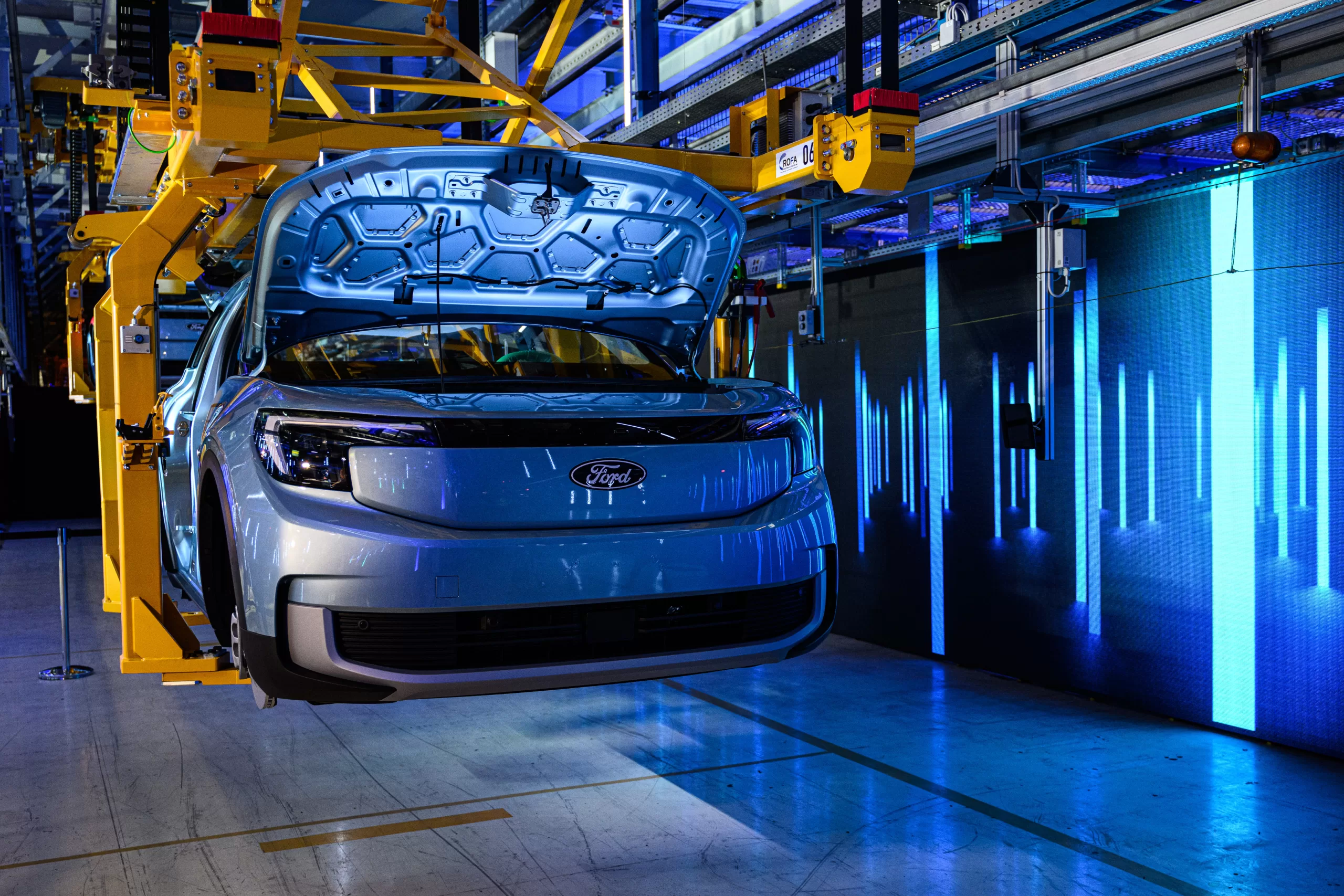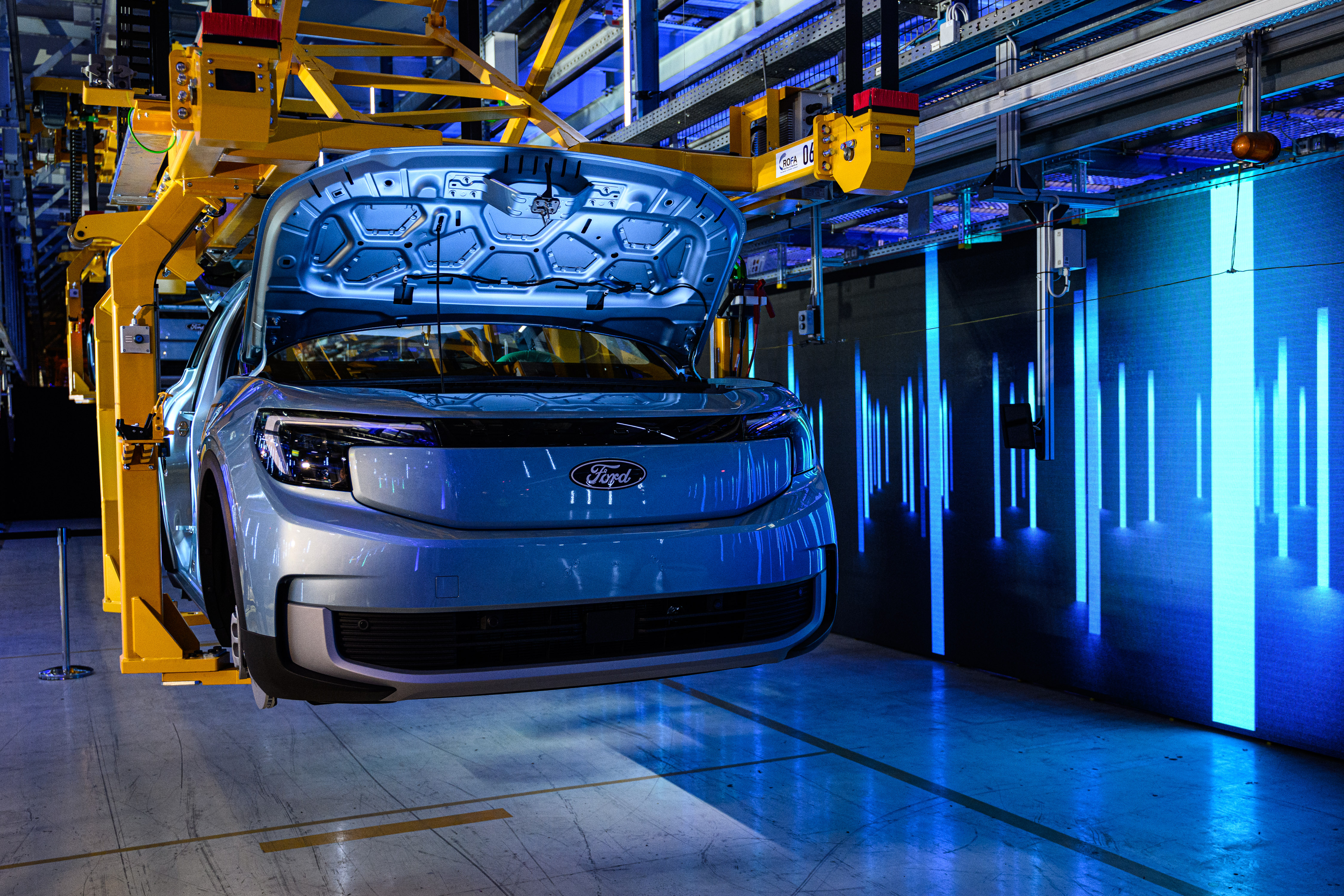Martin Sander, general manager of Ford‘s European Electric Car Division, said the brand could restrict the production of combustion motors in the UK to increase EV sales and avoid significant fines.
The boss warned against the UK government’s new EV rules launched this year – and highlighted the issues it’ll pose for car brands.
Speaking at the Financial Times Future of the Car Summit, Sander said the only way to meet the net zero goals without paying fines is to reduce the number of Ford petrol cars sold in the UK.
He added: “The only alternative is to take our shipments of ICE [internal combustion engine] vehicles to the UK down and sell them somewhere else.
It comes after Rishi Sunak introduced the Zero Emission Vehicle (ZEV) Mandate in a bid to push EV production in the country.
It is a set of strict rules that demand manufacturers ease the production of petrol and diesel models for electric cars.
The ZEV mandate will ensure that brands who fail to meet EV production targets could be handed £15,000 fines for every vehicle over the threshold.
Ford, however, has said it remains committed to an EV-only lineup by 2030, with an interim target of all its European models being either electric or hybrid by 2026.
As part of that eco-friendly push, the American giant reaffirmed its decision to discontinue the legendary Focus hatchback.
The move was first announced in 2022, but Ford’s head of Europe Martin Sander doubled down on the decision this month.
Asked whether the Focus could be extended beyond its current expiry date in light of the EV struggle, he remained firm.
Sander emphasised that the company doesn’t have “any plans to extend Focus production” at its plant in Saarlouis, Germany.
The only alternative is to take [Ford’s] shipments of ICE [internal combustion engine] vehicles to the UK down and sell them somewhere else
Martin Sander
He added: “In the long run, we are still deeply convinced that EVs will be the future and we will see a significant increase in volume.
“By the end of this year, we will have a full range of electric vehicles – both in the passenger vehicle sector but also in our commercial vehicle business line – and we are quite flexible to adapt to market demand. For the next couple of years, we have a broad choice.
“Basically, our customers have the power of choice to pick what they want.”
As a result, the model will mark the end of a nearly three-decade run when the last one rolls off the assembly line in mid-2025.
That being said, it is not the end of the line for Ford’s storied range of smaller models.
Bosses have suggested that hatchback EV models are on the way after the launch of a four-strong range of SUVs in the coming years.
It comes after Ford also took the decision to scrap the Fiesta, which was Britain’s best-selling car for 12 consecutive years, in service of its electric future.
What is UK’s new ZEV Mandate?
By Jacob Jaffa
INTRODUCED by the Department for Transport, the Government’s new Zero Emission Vehicle (ZEV) Mandate came into force across the UK in January.
- Developed alongside devolved administrations in Scotland, Wales and Northern Ireland, the mandate will require a 22% share of new vehicles sold by any manufacturer in this country to be ZEVs.
- The threshold will then rise each year, eventually reaching £100 in 2035.
- Non-compliance will see car makers forced to pay a fine of £15,000 for every polluting vehicle above the limit that is sold. For example, if a brand missed its target by 100 units, it would be required to pay a whopping £1,500,000 penalty.
- A similar requirement is also being brought in for van sales, though at a lower starting point of 10%.
The move seemingly largely nullifies PM Rishi Sunak’s decision to delay the ban on sales of new petrol and diesel cars from 2030 to 2035, announced in September, as manufacturers will have to make 80% of their output zero-emission by the former deadline anyway.
Technology and Decarbonisation minister Anthony Browne said: “Alongside us having spent more than £2 billion in the transition to electric vehicles, our zero-emission vehicle mandate will further boost the economy and support manufacturers to safeguard skilled British jobs in the automotive industry.
“We are providing investment certainty for the charging sector to expand our charging network, which has already grown by 44% since this time last year.
“This will support the constantly growing number of EVs in the UK, which currently account for over 16% of the new UK car market.”
And Akira Kirton, the vice president of charging provider BP Pulse, added that the new rules would “instil confidence” in the future of EVs.
Mr Kirton also reaffirmed the company’s plans to invest £1 billion over the next 10 years to improve charging infrastructure.


